The Silent Superpower of the Modern Workplace
Soft skills are the silent superpower driving success in today’s business landscape. While technical abilities or “hard skills” are essential for getting the job done, it’s the soft skills—like communication, teamwork, and adaptability—that truly set top performers apart.
According to research, 75% of long-term job success can be attributed to people skills, while only 25% of career advancement is due to technical knowledge. In a competitive market where companies are vying for every edge, developing soft skills is no longer optional—it’s essential. This article dives into why business soft skills are becoming increasingly critical and how they can make or break your career.
Hard Skills vs. Soft Skills: What’s the Real Game Changer?
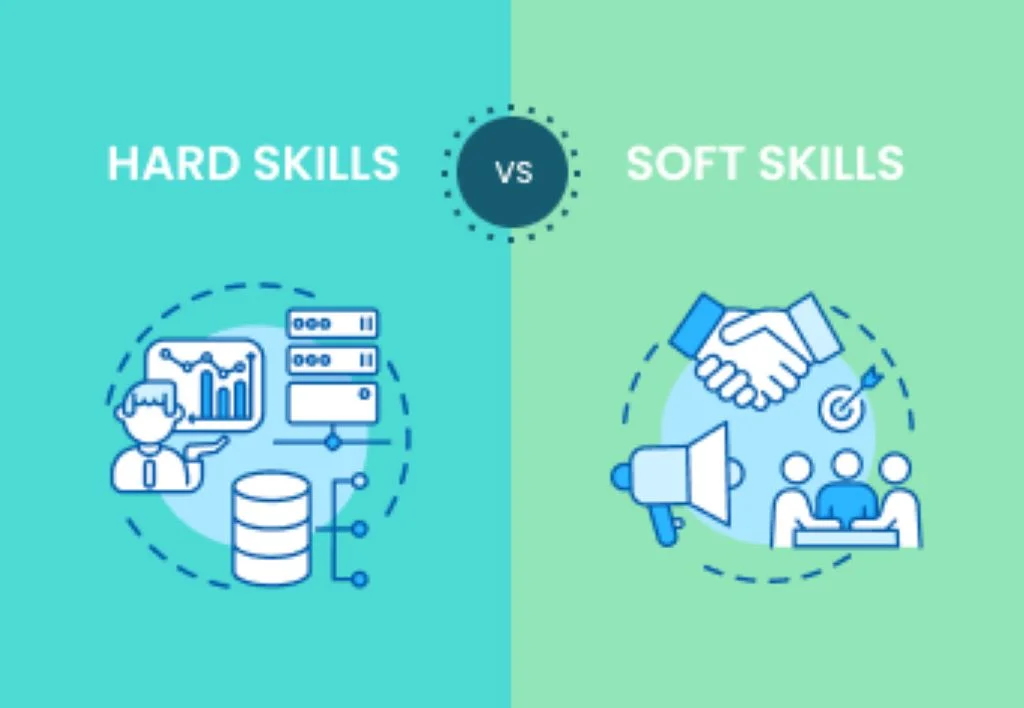
Hard skills are the specific technical abilities and knowledge required to perform certain tasks—think coding, accounting, or data analysis. These skills are typically measurable and easy to demonstrate through certifications formal training, degrees, or hands-on experience. However, in today’s dynamic work environment, soft skills have emerged as the true differentiators.
Soft skills encompass interpersonal abilities such practical skills such as communication, problem-solving, and emotional intelligence. They are the glue that holds teams together and the catalyst that drives effective collaboration. A LinkedIn study found that 92% of employers prioritize soft skills equally or even more than hard skills when hiring. This shift reflects the evolving needs of the modern workplace, where the ability to connect with others, navigate challenges, and adapt to change is invaluable.
The Power of Soft Skills: How They Shape Workplace Dynamics
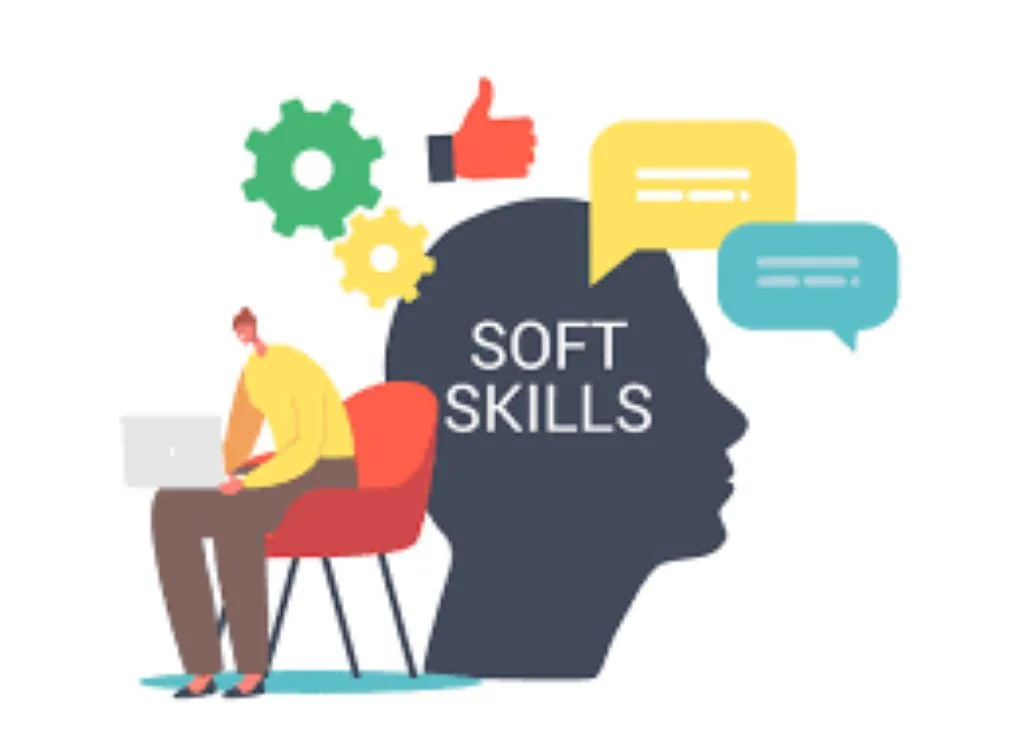
Soft skills are not just nice-to-haves—they are essential tools that shape the dynamics of any successful workplace. Here’s a closer look at how these essential soft skills influence and enhance the work environment:
Improved Communication
Effective and concise communication that is at the heart of every successful team. Whether it’s articulating ideas clearly in a meeting, actively listening to colleagues, or providing constructive feedback, communication skills build the foundation for strong working relationships. As remote and hybrid work becomes more common, the ability to communicate effectively across various platforms is more critical than ever.
Teamwork and Collaboration
In today’s business world, teamwork is key. Organizations increasingly rely on cross-functional teams to tackle complex problems and drive innovation. Soft skills like collaboration and empathy enable employees to work together harmoniously, leveraging each other’s strengths to achieve shared goals. This collective approach enhances creativity and leads to better outcomes.
Adaptability
The business landscape is constantly evolving, driven by technological advancements, market shifts, and unexpected challenges. Employees who are adaptable and open to change are invaluable assets. Adaptability allows individuals and organizations to pivot quickly, embrace new opportunities, and maintain a competitive edge.
Problem-Solving and Critical Thinking
In the face of challenges, the ability to think critically and solve problems creatively is what sets successful professionals apart. These skills empower employees to approach issues from different angles, identify the best solutions, and implement them effectively. This not only boosts individual job performance but also contributes to the organization’s overall decision-making process.
Employer Preferences and the Soft Skills Gap
Despite the clear importance of soft skills, a significant gap exists between what employers seek and what candidates possess. A LinkedIn survey found that while nearly all talent professionals value soft skills, only 37% believe that entry-level employees have them. This disconnect poses a challenge for businesses, as the lack of essential interpersonal skills can hinder team dynamics and reduce overall productivity.
The soft skills gap underscores the need for targeted training and development. Employers are increasingly looking for ways to close this gap, investing in workshops, coaching, and other initiatives to help employees build their soft skills. For job seekers, this soft skill also presents a unique opportunity: those who can demonstrate strong communication, adaptability, and problem-solving skills will stand out in a crowded job market.
Top 10 Soft Skills Employers Are Looking For Right Now
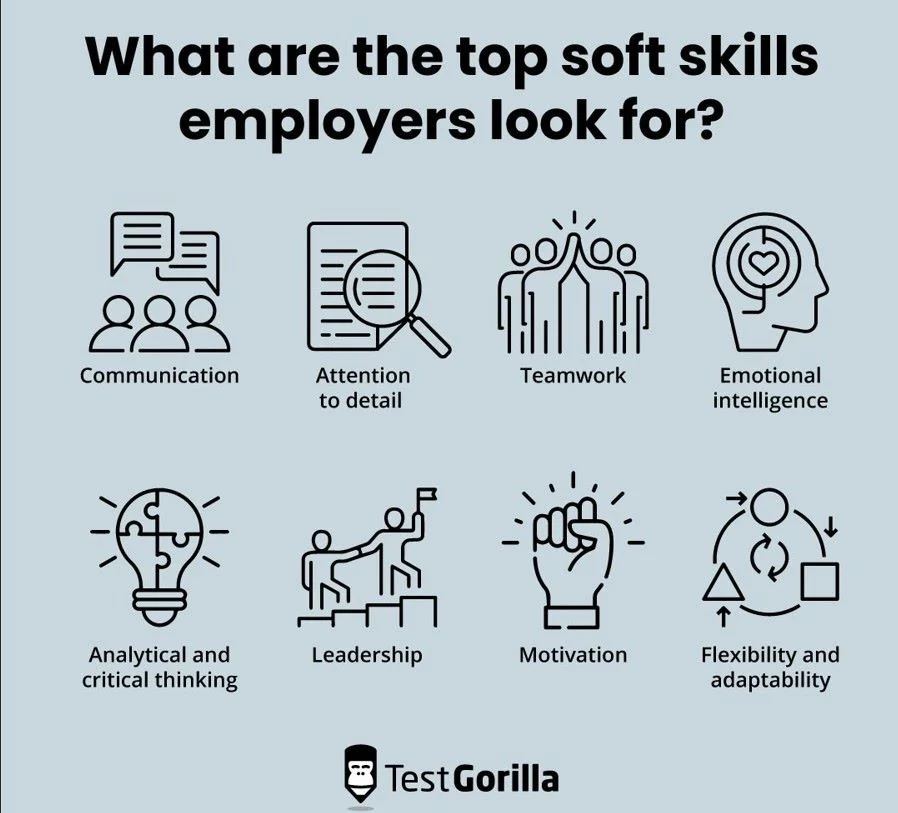
Soft skills are increasingly recognized as key differentiators in the job market. Here’s a closer look at the top 10 soft skills that employers value most in today’s market:
1 - Communication Skills
Effective communication is foundational in any role. Employers seek individuals who can articulate ideas clearly, give clear and concise communication, listen actively, and adjust their communication style to suit different audiences. This skill extends to both verbal and written communication, which is essential for avoiding misunderstandings and ensuring that teams are on the same page.
2 - Teamwork and Collaboration
The ability to work well in teams is essential in today’s collaborative work environments. Employers value candidates who can contribute positively to positive work environment, leverage their strengths, and work towards common goals, especially in industries that rely heavily on teamwork.
3 - Adaptability
In a world where business conditions can change rapidly, adaptability is a highly sought-after trait. Employers are looking for individuals who can handle unexpected challenges, embrace new technologies, have business skills, and adjust to evolving roles and responsibilities.
4 - Problem-Solving
The capacity to identify issues, analyze them, and develop effective solutions is critical to professional growth. Employers favor those who approach challenges creatively, make informed decisions, and contribute to continuous improvement within their organizations.
5 - Critical Thinking
Critical thinking involves evaluating information objectively and making logical, reasoned judgments. It’s particularly important in roles that involve data analysis, strategic planning, and decision-making, as it drives better outcomes.
6 - Leadership Skills
Leadership is not limited to those in management positions. Employers appreciate candidates who can inspire, motivate, and guide others, whether through formal leadership roles or by setting a positive example within their teams.
7 - Time Management
Effective time management is crucial for maintaining productivity in fast-paced environments. Employers value individuals who can prioritize tasks, meet deadlines, and manage their workload efficiently without constant oversight.
8 - Conflict Resolution
Conflict is inevitable in any workplace, but it’s how it’s managed that makes the difference. Employers look for candidates who can navigate disputes diplomatically, communicate under pressure, and find resolutions that satisfy all parties involved.
9 - Emotional Intelligence (EQ)
Emotional intelligence encompasses self-awareness, empathy, and the ability to manage one’s emotions while understanding others. High EQ is associated with better teamwork, leadership, stress management, and conflict resolution, making it a highly prized skill.
10 - Work Ethic
A strong work ethic indicates reliability, dedication, and a willingness to go the extra mile. Employers seek individuals who have strong relationships, are committed, dependable, and consistently strive to deliver high-quality results.
Developing Soft Skills: Key Strategies for Organizations
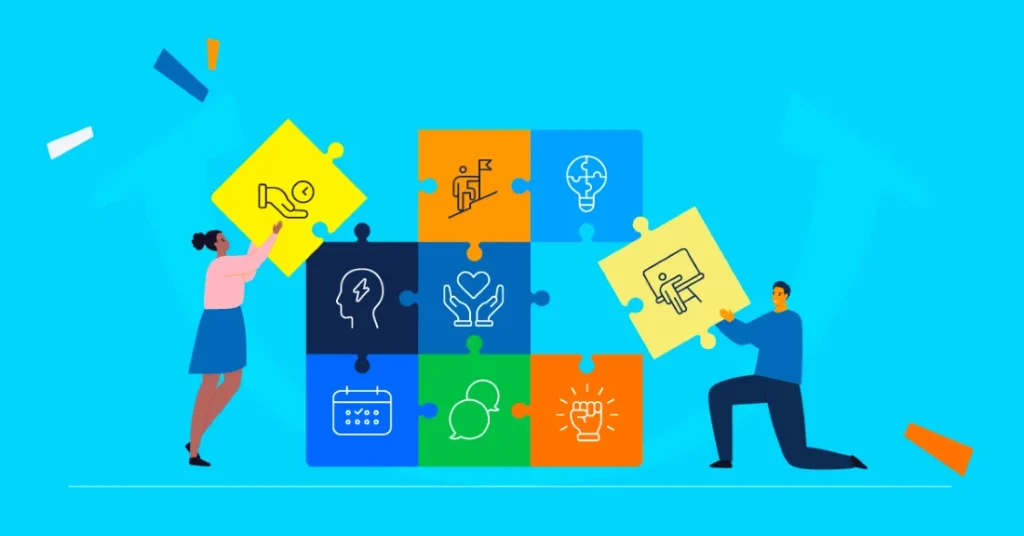
Building a workforce with strong soft skills requires intentional efforts from organizations. Here are some effective strategies to develop these valuable soft skills first:
- Training Programs: Implement targeted workshops and seminars focused on enhancing specific soft skills such as communication, leadership, or problem-solving. Online courses and e-learning platforms also offer flexible options for employees to learn at their own pace.
- Feedback Mechanisms: Continuous feedback is crucial for personal development. Organizations should encourage feedback from peers, supervisors, and even customers to help employees identify areas for improvement and track their progress.
- Diverse Experiences: Promote opportunities for employees to work on cross-functional teams, take on leadership roles, or handle new challenges. These experiences push employees out of their comfort zones, helping them to develop valuable interpersonal skills.
- Interactive Activities: Incorporate role-playing, group discussions, and gamification into training programs to make learning engaging and practical. These activities help reinforce skills and build confidence in applying them in real-world scenarios.
In today’s dynamic business environment, mastering soft skills like communication, teamwork, and adaptability is essential for success. To enhance these competencies within your organization, consider RiseUp Global’s Collaboration Training Programs. These programs are designed to improve team dynamics and foster effective collaboration, equipping your team with the tools needed to excel in the modern workplace.
Long-Term Benefits of Soft Skills Training: The Ripple Effect
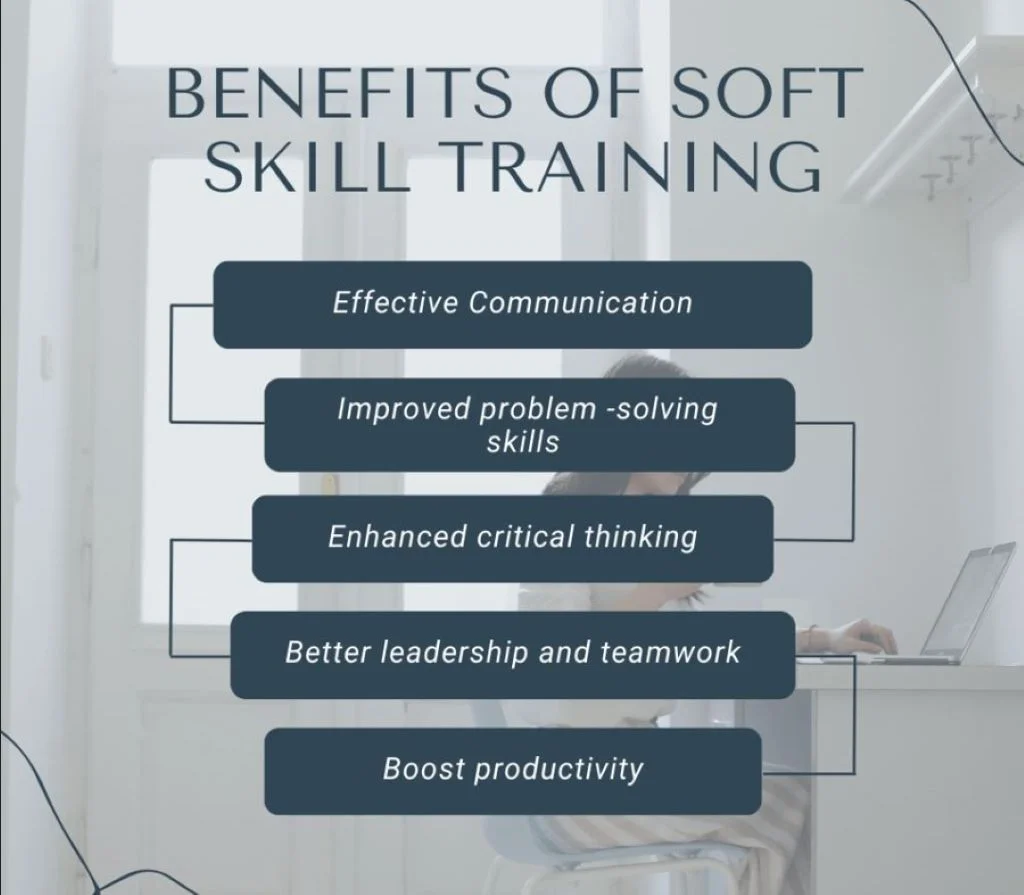
Investing in soft skills training yields significant long-term benefits for both employees and organizations:
- Enhanced Team Dynamics: Improved communication and conflict resolution lead to more cohesive teams, fostering an environment where collaboration and innovation thrive.
- Higher Employee Engagement and Satisfaction: Employees who feel supported in their professional development are more likely to be engaged, motivated, and loyal. This translates into higher productivity and lower turnover rates.
- Better Customer Relations: Soft skills training extends beyond internal interactions; it enhances customer service capabilities as well. Employees who can empathize, listen, and respond effectively to customer needs build stronger, more lasting relationships.
- Sustainable Success: Organizations that invest in developing their workforce’s soft skills often see tangible improvements in profitability, productivity, and overall business performance. For instance, companies that emphasize these competencies report up to a 14.5% increase in productivity.
The Future of Work: Why Soft Skills Will Only Become More Important
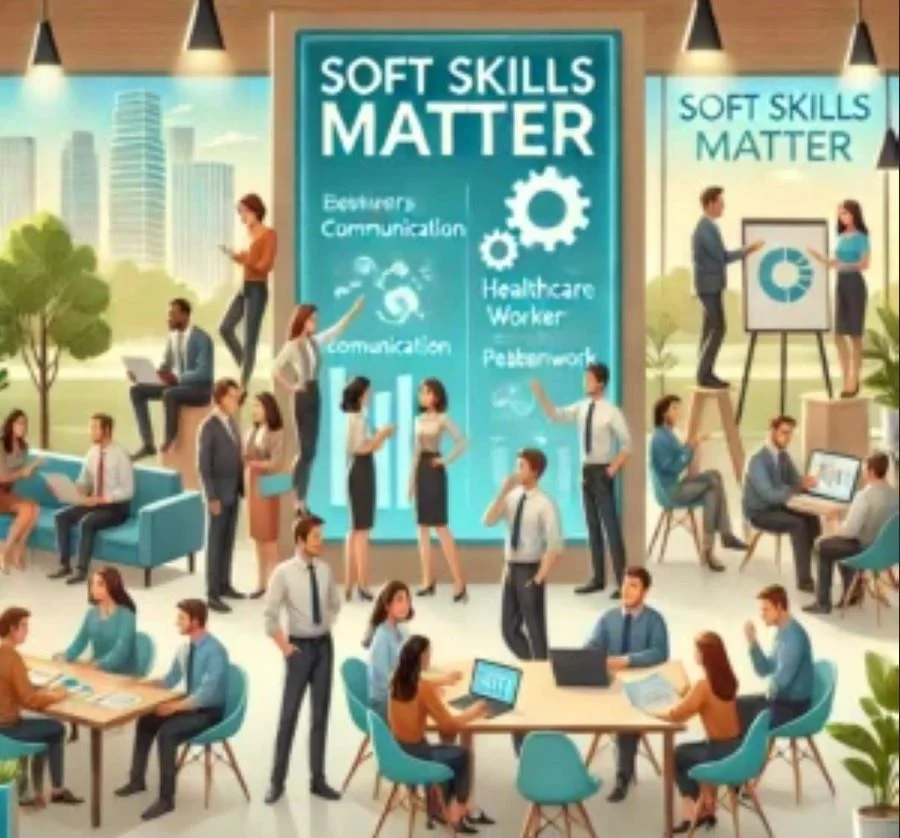
As automation and artificial intelligence continue to evolve, many technical skills will become obsolete or automated. However, many soft skills, like empathy, critical thinking, and leadership will remain uniquely human and irreplaceable. In this future landscape, those with strong interpersonal abilities will be the ones who stand out, driving innovation, fostering collaboration, and leading their organizations to success.
Employers will continue to seek out individuals who improve soft skills and can bring a human touch to increasingly digital workplaces, making the development of soft skills not just a competitive advantage but a necessity.
Soft Skills – The Key to Thriving in Today’s Market

Soft skills are no longer just an added benefit; they are critical for navigating the complexities of today’s work environment. By enhancing communication, their problem solving abilities fostering teamwork, improving adaptability, and boosting employee engagement, soft skills contribute to long-term success for individuals and organizations alike. In a world where technical skills can be automated, soft skills provide the human touch that will always be in demand.
The journey to mastering soft skills is ongoing, but it’s one that pays dividends in every aspect of your career. Whether you’re a job seeker looking to stand out, an employee aiming to climb the corporate ladder, or an organization striving for a competitive edge, investing in soft skills is the key to unlocking your full potential. Start today—take a workshop, seek feedback, and step out of your comfort zone. The rewards of strong soft skills are limitless, opening doors to a more fulfilling and successful career.
Effective and concise communication that is at the heart of every successful team. Whether it’s articulating ideas clearly in a meeting, actively listening to colleagues, or providing constructive feedback, communication skills build the foundation for strong working relationships. As remote and hybrid work becomes more common, the ability to communicate effectively across various platforms is more critical than ever.

A trailblazer in humanising leadership and building high-resilience teams. As a former United Nations Peacekeeper, he leverages his high-stakes experience to redefine leadership dynamics. With a career distinguished by numerous accolades, Joseph now helps organizations thrive through a human-centric approach, enhancing performance, productivity, and workplace culture.






